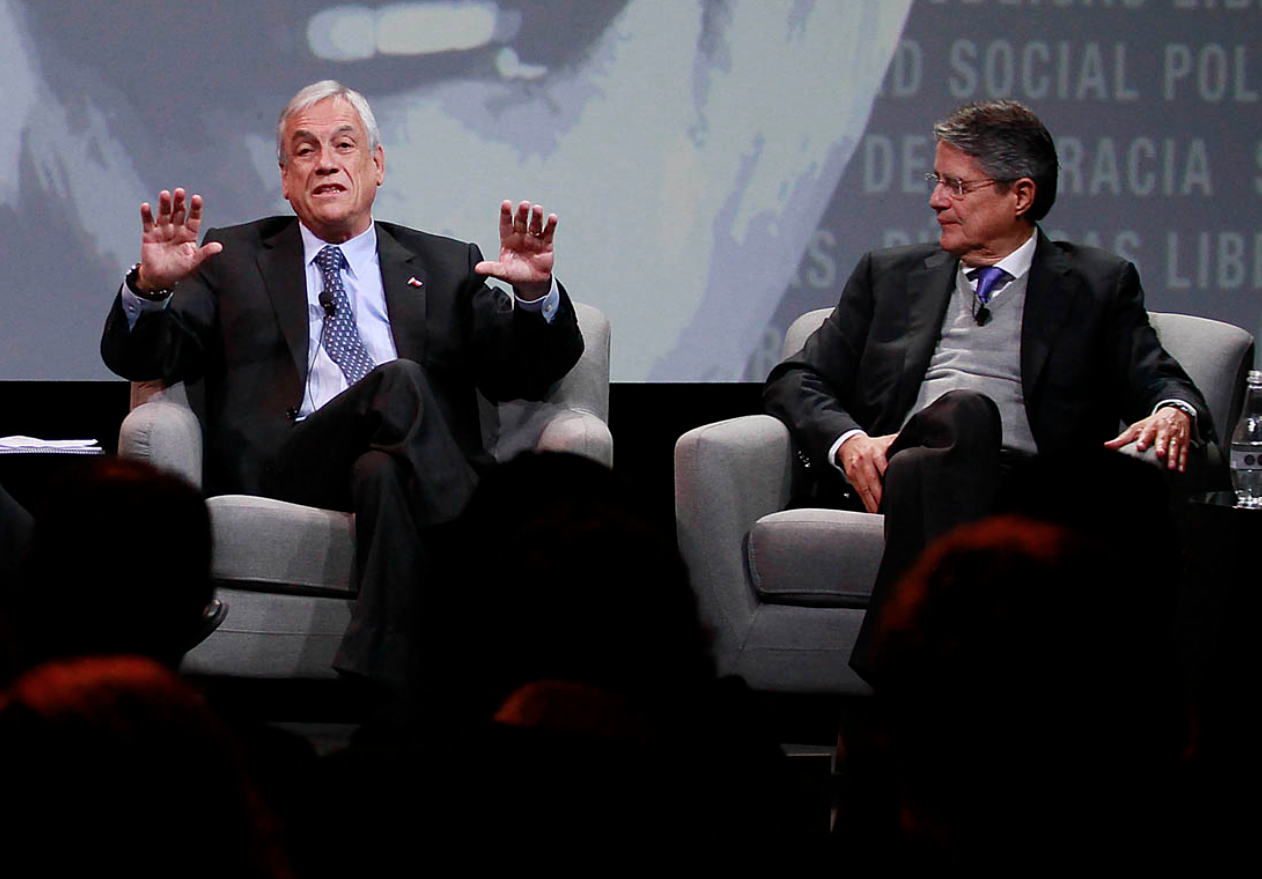The current malaise in Latin American democracies — and in Spain as well — has much to do with the fact that the most important social democratic parties, those political organizations that during the second half of the last century helped build multiple transitions to democracy, do not always refrain from flirting with the new far left. The latter, for their part, have not lost one iota of their will to power. Instead, they have been able to refashion themselves to continue operating in the post-Cold War world. This world has been transformed by the Third Democratizing Wave, the fall of the Soviet Union, and the generalized opening of trade borders.
Blurred center-left
In the new global context, the far left has abandoned the more orthodox postulates of conventional Marxism. During the last decades, it has striven to generate new ideological currents and renewed political practices. In Latin America, these practices range from the broadening of protest repertoires to the implementation of various constituent processes. They include the massive colonization of academic and cultural media. In the face of such novelties, traditional social democrats are now short of ideas. They are unsure of their own political tradition and overwhelmed by the thrust of their more extreme relatives. To the point that they often end up surrendering to the guidelines that the latter put forward.
This vassalage is reflected in new instances such as the São Paulo Forum, the Puebla Group, and the Progressive International. These are new, varied, and diverse spaces that have emerged in the tradition of communist internationalism. There, both democrats and autocrats end up sharing ideology and lines of action. A multitude of social democratic parties are participating, thus breaking, tacitly or explicitly, a healthy understanding with the center-right, or, In other words, with the foundation of the political center that during the 1990s made it possible to stabilize the difficult transition to democracy in many countries.
Paralysis of the center-right
Now, if the traditional center-left seems to be slowly succumbing to the weight of habit and its lack of convictions and ideas, the same is happening with the traditional parties of the Latin American center-right. Their cadres and structures tend to move lazily within the framework of a sterilizing inertia. They are often under the sway of certain figures who are more allergic to change than to nepotism. There is little willingness to engage in cultural struggle and to renew the political debate with discussions on values and proposals. While reacting with skepticism to any innovative initiative.
Like their social democratic counterparts, the parties of the Latin American center-right have been alternating in the exercise of government for several decades, thus wearing down their capacity for representation and articulation of popular demands. The consolidated links with certain sectors of society sometimes tend to distance them from popular sentiment, leading them to even label as populist any attempt to speak to the common people. The collateral and pernicious effects of this inertia increase in societies as unequal as those in Latin America. The vacuum of counterweights to the political left that was left by the traditional center-right ends up being filled by leaders that are truly populist and, sometimes, authoritarian.
However, this is where a crucial difference with the social democrats arises. The center-right tends to be more demanding than the center-left when it comes to associating with those who emerge on its more extreme side. While the regional social democracies sometimes go beyond winking at them and openly cooperate with dictatorships in Cuba, Venezuela and Nicaragua. It is much more difficult for the traditional center-right parties to do the same with figures like Bukele, whom they often question in public statements.
Reflection and renewal
Occasionally, this distancing obeys a genuine democratic conscience. At other times, it seeks to defend the interests of certain traditional center-right parties. And these disruptive figures can put them in check. Sometimes, it also happens that — by fervent conviction or circumstantial convenience — the center-right has slipped so far to the left that, for example, some Christian-social political cadres in South America give the impression of being closer to the socialist ideology — in the style of the São Paulo Forum — than to the positions defended by the organizations that constitute the European People’s Party.
Due to the consequences of all the aforementioned, the positions of the traditional center-right in Latin America are structurally weakened by the philo-authoritarian blocs that bring together the entire left, as well as by the rise of certain right-wing populists. The repeated calls they make to their former social democratic partners to rebuild the political center do not seem to yield too many results. Since the latter do not always make no bones about the left-wing hegemonies they can set up together with their more extreme partners.
Necessary innovation
The point, in short, is that the social and political forces of the traditional center-right often lack the necessary reflexes, acuity, and will to power to undertake a profound renewal of their political practices. Reality seems to show that the political center cannot be rebuilt through the mere questioning of some and the pitiful pleading of others. Much less by mimicking them. Consequently, the only alternative is to take up the challenge of political innovation while sticking to one’s own tradition. To do so, we must raise the defense of values, entering fully into the debate of ideas and returning to politics beyond the parties.
Likewise, classical liberals, Christian humanists, and democratic conservatives have to resume the desire and the will to become genuinely popular political forces, highlighting the links that unite them and not the differences that distance them. Only in this way will it be possible to form a hard core capable of forging, in its own right, a broad political space oriented to the defense and promotion of freedom and democracy. There is no other way to exercise, with strength, courage, and firmness, the necessary moderation to sustain the course of a liberal democracy. Some initiatives are already pointing in this direction, often with women as protagonists, but that is the subject of another article.
*This text was originally published in Diálogo Político.
Translated by Janaína Ruviaro da Silva from the original in Spanish.













